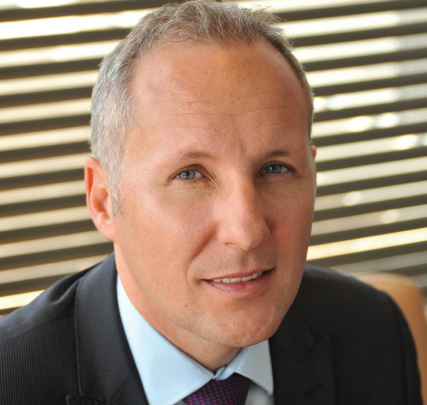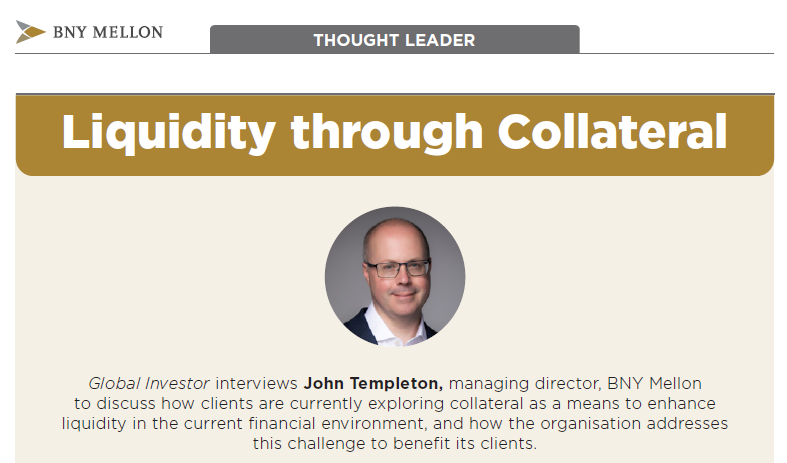Africa’s evolving capital markets are attracting a new wave of international investors

Charl Bruyns, Head of Financial Institutions and Investor Services for Standard Bank Group explains how Africa’s evolving capital markets are attracting a new wave of international investors, with an exacting set of requirements for operational transparency.
How would you characterise recent development in the individual capital markets across Africa?
When you talk to portfolio managers it is clear that they anticipate greater allocations to Africa in the medium-term, thanks to the untapped resource and opportunities Africa offers coupled with the demographic dividend of a continent whose working-age population is expected to rise by 900m people between 2015 and 2050 (FT, Oct 2018). But they are also aware of the leading role played by sentiment in these markets. Certain corporate or political events tend to trigger quicker responses in terms of capital flows than in other emerging or developed markets and portfolio managers remain wary of this fact.
Last year we saw this play out in liquidity shortages in Nigeria’s FX market, and the impact of several high-profile corporate events. However, once those storms had been weathered, we saw foreign investor flows double, facilitated by the longer-term structural reforms the country has effected in recent years.
In Kenya a maturing savings industry is driving greater liquidity and infrastructure development, which has increased the country’s appeal to foreign investors. In Ghana too we have seen significant flows, with a lot of interest in the securitisation of bank funding structures over the last two years.
Much is expected from Uganda in the next few years, given the growth of the country’s oil reserves. For the time being, however, rapid investment in the country has driven down yields, which are now below the levels needed to attract foreign investors.
Angola is a market that international investors are watching increasingly closely. With two equity listings due over the next four months and another eight on the way next year, the market is reforming and developing fast.
South Africa, the region’s biggest market remains something of an anomaly in terms of its GDP vs. the size of its capital markets, and the sophistication of its capital markets. This year has been a difficult one for investor sentiment so far, which has pushed flows out of the market. But there is still plenty of activity: it has been a bumpy year, but investors are well aware of the country’s fundamental appeal.
What do international investors expect when investing in Africa?
Investors entering markets at any scale want to be closely involved in the market they are trading, since being directly involved and closer to the day-to-day shifts in the market provides them with a competitive advantage. However, for international investors asset allocation to Africa is still relatively low when compared to other regions. At the same time, the growing costs associated with compliance and risk management for all banks have increased the cost of maintaining relationships with multiple providers across the region. As a result, now more than ever, banks are looking to providers who can combine a comprehensive regional network with a high degree of knowledge and expertise in each local market.
The second noteworthy feature of international investors’ and banks involvement in Africa is that their operational standards will often exceed those required by the individual countries they are investing in.
Regulatory requirements like AIFMD and UCITS has the impact that it drives a level of requirement in capital markets that far exceeds local regulatory requirements. These fiduciary requirements mean that the foreign investments bring high expectations regarding the level of infrastructure support, the degree of oversight, the level of risk management, detailed independent controls, compliance, internal audit and the overview of operational risk. What constitutes best practice in operational or fiduciary terms typically therefore traces back to the markets in which these investors are domiciled, rather than those in which they invest. The reality is that there aren’t many regional providers, even less local providers who can provide the level of oversight, transparency and capability required to meet these standards set.
What are individual markets doing to ease access for foreign investors and other participants and how are you contributing to these efforts?
Individual markets have been focusing on improving IT and regulatory infrastructure, introduce new products and develop local savings market to deepen capital markets and attract foreign investors. Recently, we have seen a lot of activity in the second tier of African capital markets (South Africa’s being the only member of the first tier), such as Kenya and Nigeria.
In July the Nairobi Securities Exchange launched a derivatives market following two years of extensive work with market infrastructure and regulators, and the market is now working to develop a framework for securities lending.
In Nigeria the last three years have seen considerable progress in regulatory and market reform in launching securities lending, which is now launched. The treatment of deemed dividends needs further enhancement with local tax regulators and using different forms of collateral in securing transactions.
Then in the third tier, a group that includes countries like Tanzania, Malawi and Zambia, we are seeing rapid progress in the reform of local savings markets, which is paving the way for development of the industries. In Africa, State-owned funds will typically drive the pension market and lately there has been a big drive to reform local savings and pension fund regulations, which has resulted in the opening of savings markets to new products and improved operational infrastructures. Standard Bank has been at forefront of driving new developments in active partnership with regulators and market infrastructure in markets across Africa.
Why is finding a provider with a local presence important in Africa? Local presence is critical across Africa, just as it is in any frontier market. Flow businesses like investor services need to invest in the market in order to develop a robust local capability. Remotely managing an operation might give you a short-term gain, but over the long term it is a risky approach and it will ultimately stifle the investment and development of the market.
Thus, investing in people and capability on the ground in the local market and building a scalable platform is key. Being a scale regional specialist makes it easier to invest and leverage core skill sets and capabilities. If you are a multi-regional player, it is hard to maintain direct coverage of several regions simultaneously and invest accordingly. Consider for example how diverse Europe, the Middle East and Africa are as operating environments: it is simply very tough to offer your best capability and focus in all those regions.
Conversely, if you have a focus on Africa or – even more specifically – on sub-Saharan Africa, you can develop real domestic and regional expertise. The more familiar you become with the region the more you have an opportunity to leverage learnings and best practices between markets in order to deliver a uniform experience.
To understand what services are needed, meanwhile, the crucial element is having a good combination of various client segments that bring together best global practice coupled with local developmental requirements. We are in a privileged position to partner large international banks and investors whilst having a strong local client base. This means we work with the local regulators in bringing best global practice with local demand and moving the market forward. That’s how you develop best practice that enable foreign investor access and benefiting domestic investors.
Can you give us an example of how this local advocacy works in practice?
Market advocacy is a huge part of what we do. We are part of 85 market forums across the region, through which we advance the agenda of our clients both local and international.
We use these forums to drive changes, whether is growing market capability, bringing global best practices or creating sustainability within existing market infrastructure. Some of the items mentioned before are launching of derivatives markets in Kenya, securities lending in Nigeria and launching trustee services in Zambia. From a perspective of creating sustainability in the market we work closely on initiatives for instance driving electronic certificates of capital importation (ECCI) in Nigeria, investor protection in Tanzania on savings assets and CCP’s in South Africa to name a few. We on average drive at a minimum at least 3-5 market advocacy agenda items per market. Furthermore, we partner markets in setting up custody infrastructure for example the Angolan market to enable institutional investment
Found this useful?
Take a complimentary trial of the FOW Marketing Intelligence Platform – the comprehensive source of news and analysis across the buy- and sell- side.
Gain access to:
- A single source of in-depth news, insight and analysis across Asset Management, Securities Finance, Custody, Fund Services and Derivatives
- Our interactive database, optimized to enable you to summarise data and build graphs outlining market activity
- Exclusive whitepapers, supplements and industry analysis curated and published by Futures & Options World
- Breaking news, daily and weekly alerts on the markets most relevant to you



